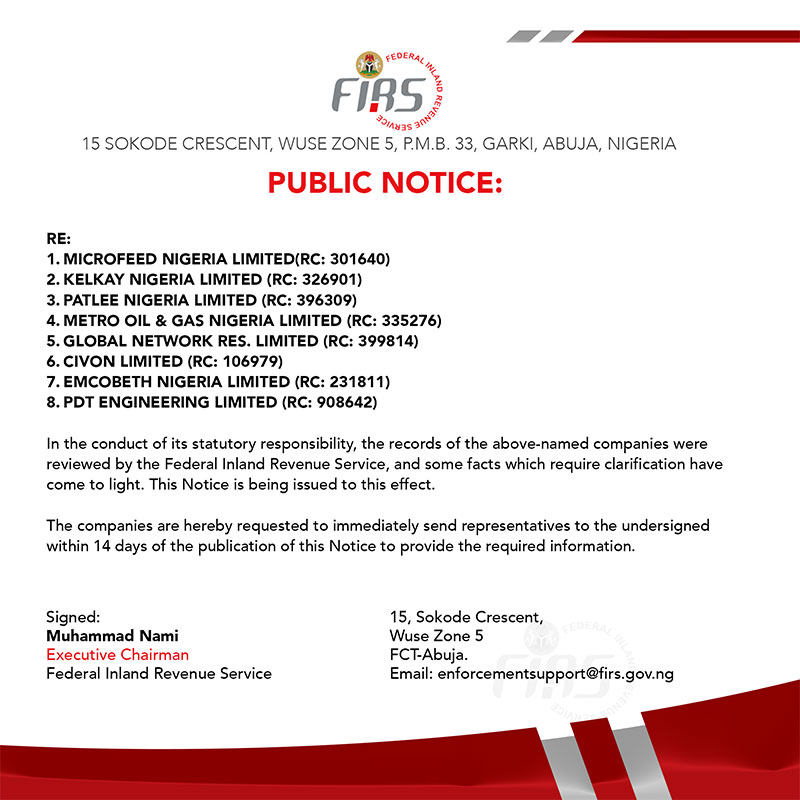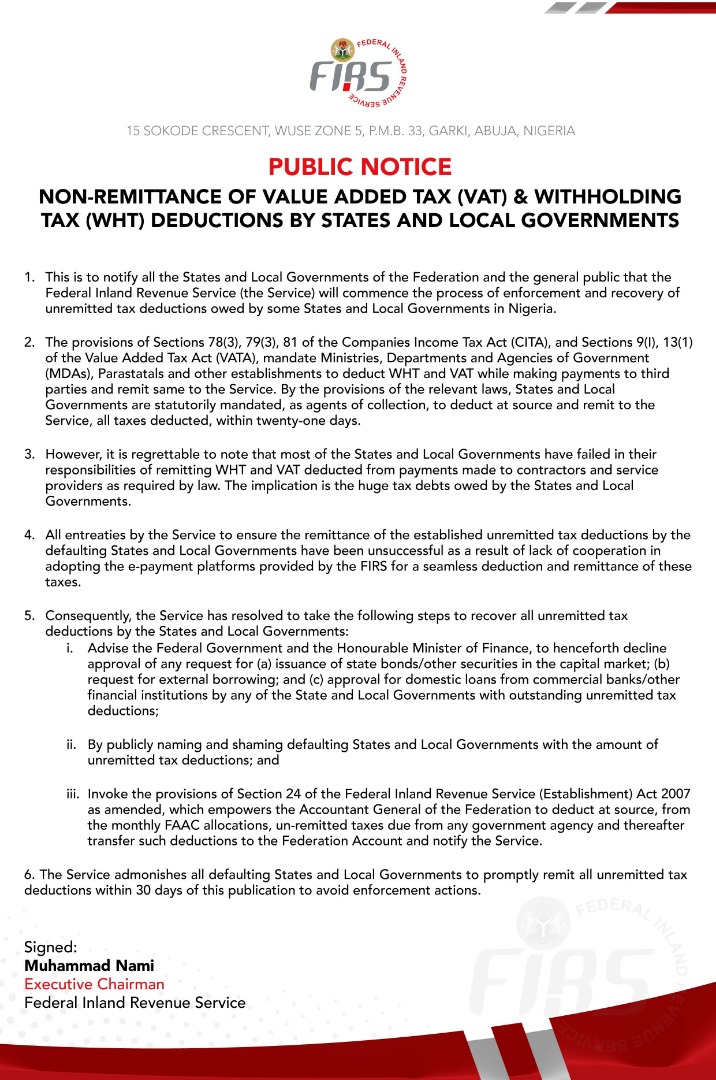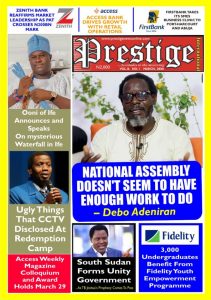-We can’t re-issue old notes without CBN directive — Banks
Stakeholders in the financial sector and banks are divided over re-issuance of the old naira notes following the Supreme Court judgement extending their legal tender status till December 31st 2023.
While banks said they cant commence re-issuance of the old notes until they are directed to do so by the CBN, stakeholders including bank customers, financial analysts and business owners have called for immediate re-issuance of the old naira notes in compliance with the Supreme Court,
Some banks’ officials who spoke to Vanguard MoneyDigest said the banks would comply once they get a directive from CBN.
One of the officials working with Access Bank who spoke on condition of anonymity said the banks would obey what CBN says, not the Supreme Court.
“Banks in Nigeria are heavily regulated, and we only listen to what the CBN says. Despite the ruling, we still need to hear from our regulator”, he said.
On whether the apex bank will obey, he said the CBN reports to the President and that the President has decided on the issue.
“We all know what the President has said on the matter. The CBN takes its orders from the Presidency. I am sure any action by CBN would be a directive from the President
Another bank official, who works from Keystone Bank said: “We can’t do anything contrary to CBN. They will direct what next and probably from Monday we shall get more updates from our management when they meet on Monday.
But another bank official who also pleaded to remain anonymous, told Vanguard Money Digest that in spite of the directive, the old notes have not been made available to the bank.
In his words, “We don’t have the old notes and we are not answerable to the Supreme Court. The CBN must send a circular before we can implement any directive.”
Corroborating, another banker stressed that the old Naira notes are no longer in their possession, adding that if the CBN makes it available to banks they will start paying their customers.
Financial analysts
Financial analysts however called for immediate re-issuance of the old Naira notes in compliance with the Supreme Court judgement.
Speaking in this regard, Tajudeen Olayinka, Chief Executive Officer, Wyoming Capital and Partners said: “I think the immediate impacts are: restoration of cash/liquidity to the system; improvement in circular flow; and obliteration of initial objectives of CBN to remove illegal money/money in wrong hands; to remove distortions; and to reduce inflationary pressure.
“CBN got the whole thing wrong by introducing a policy without good knowledge of policy/system dynamics, and it is sad that it started and ended in ignominy.”
Similarly, Prof Uche Uwaleke, President, Association of Capital Market Academic of Nigeria, ACMAN, said: “I advise the CBN to comply with the ruling since it has come from the final court in the land.
“Doing so will help revive economic activities and reduce the current difficulties being experienced by Nigerians on account of the policy.
“Be that as it may, it’s important to recognize that the CBN has recorded some achievements in terms of the objectives it set out to achieve. The reduction in huge cash circulating outside the commercial banks, the surge in electronic transactions, increase in financial Inclusion are part of the achievements recorded thus far.
” The time frame till Dec 31, 2023 provides an opportunity for the CBN to re-assess the policy and improve on its implementation without causing distortions to the economy”.
Business Owners
Reacting to the development, a PoS operator identified only as Darlington, said that the Supreme Court order is a welcome development as this will favour the masses .
According to him, in recent times, most Nigerians have decided to trade by barter in a bid to survive.
Darlington, also said that this will ease the overcharges the operators are collecting from customers. “That means, we will return to our normal N100 naira charges per transaction,” he added.
However, Olamide, an engineer, said that he has over N200,000 (Two hundred thousand) of the old notes still with him and that he has been thinking on how to deposit it to the bank.
In his words , “My business has not been unsteady since the policy. Most banks have refused to pay the new naira notes to Nigerians, they always complain of not having cash in their banks.”
An importer, Lanre said that in the past court orders have not been obeyed and as such , the Supreme Court’s directive may not be implemented.
According to him, “Initially, when the Supreme Court issued the order and the President of the country issued a counter directive by saying that the old N200 Naira should continue to be in circulation, it appeared that the public chose to go with the directive from the President instead of the Supreme Court.”
“In this situation, there are two sides giving counter orders, the President and the Supreme Court. Now, the Supreme Court has gone ahead to say that those currencies should be valid till 31st of December. The only way the average market woman, the artisans and the transporters will feel comfortable and accept it is if it’s being backed up by the President.
“We will wait and see what the President will say, because it appears that the President himself has his own plan and agenda regarding the economy. Initially, people thought it was for politics because of trying to mop up excess cash in the space. To avoid, and curtail vote buying, ransom from kidnappers and to reduce corruption generally and by extension being able to curtail inflation, whereby, there is much money exchanging fewer goods, which really affects the value of the naira.
Speaking further on how this has affected businesses generally, he said, “So far the policy has affected businesses because Nigeria is not yet a cashless society. For years, people have always done their businesses using cash. So, an online kind of transaction, even though we cannot say that it is very new in Nigeria, but to an extent our people have not really adopted it fully the way it should be. So I think we are still growing in that trajectory.
According to him, for Nigeria to truly become a cashless society, it must have a working internet system.
“We realise that as much as people want to do the cashless transaction,they encounter a lot of problems. There are several cases where people are on the bank’s website and their social handles, complaining about unfulfilled transactions.
Also speaking, Queen, an employee, said that availability of the old naira notes will be another struggle for Nigerians noting that even banks couldn’t make the old N200 available when the President gave an order extending its legal tender status.
“I just withdrew N5000 for N1000 all in new notes. However, the network has been frustrating. I don’t want to imagine what this has done to the economy. Because when you can’t buy and sell then it’s a problem. You spend more time in the market because of a poor network to run transactions.
Reacting to the current cashless policy, Mr. Okubunmi Oloruntoba an Entrepreneur said the policy has made business to be very dull. The policy has also brought about a lot of distrust between business owners because when transfers are made people are sceptical about such transfers
Oloruntoba explained that both the Automated Teller Machine, ATM and cash withdrawal from inside the banks have also been a herculean task as both channels have had shortages of cash.
“Basically, business has been very slack, dull down as making transfers from clients to service providers have been very hectic. When your clients send money and the money does not get to you, they begin to think you are either lying or something. Most times these transfers take days to get to the receiver.
“This development has brought distrust amongst business owners and people begin to call you all sorts of names.”
– Vanguard





























